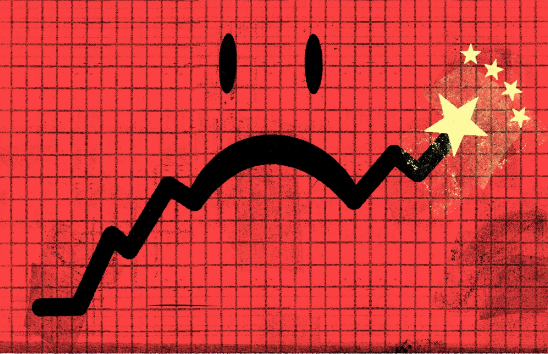
亚雷克·瓦祖尔
我们每天发表一篇文章,以表彰第四届年度学生社论大赛的前 10 名获奖者。
下面是王一琦的一篇文章,17岁。
The Anguish of the Rich
China has experienced unprecedented economic growth in the past 30 years. A widely accepted positive correlation between happiness and wealth predicts that this growth should lead to higher life satisfaction, especially among the upper classes. Contrary to traditional understandings that equate increasing economic prosperity with increases in a nation’s overall happiness, however, a recent paper on the paradox of Chinese progress draws an unusual conclusion:
In recent decades in China, life satisfaction declined dramatically at precisely the time of its unprecedented economic growth. More educated respondents, those in urban areas, and those with insufficient rest and leisure, are much less satisfied with their lives than the average.
The unhappiness of China’s growing middle class illustrates the futility of equating material success with happiness. Long working hours and high workplace stress are usually the prerequisites for ascension to higher socio-economic status. Exposure to ever-higher standards for success triggers a persistent feeling of extreme pressure to succeed, and this phenomenon is especially conspicuous among the educated. Many find that their higher aspirations are combined with an increasing lack of security in the turbulent modern economy. A vicious cycle is formed, and those trapped within it begin experiencing feelings of anxiety and depression. An increase in the incidence of mental illness is a long-term manifestation of this phenomenon: China’s psychiatric hospital admissions have increased by 183.21 percent from 2002 to 2012.
Karma Ura, president of The Centre for Bhutan Studies and GNH (Gross National Happiness) Research, has introduced a formula to gauge a nation’s wealth according to the following criteria: access to a “ravishing environment,” “vibrant health,” “strong communal relationships” as well as “meaning in life and freedom to free time.” If this formula is used as the benchmark for success, China’s economic development has clearly been achieved at the price of many people’s happiness.
In order to boost productivity, Deng Xiaoping converted the institutions of the highly-centralized planned economy to market institutions. This shift engendered a period of economic growth. While bringing economic prosperity to many, these largely-successful reforms also led to unchecked exploitation of land and natural resources, soaring average work intensity, rising income inequality and loss of communal beliefs. The legacy of reform includes severe environmental problems, a breakdown of social safety nets, and a conviction among the middle class that materialistic pleasure equals spiritual happiness. All these elements combined to create a sense of unhappiness among the bourgeoisie.
It is time that Chinese society prioritized mental health over economic success. The government should encourage this change by introducing GNH as a complement to GDP, placing more emphasis on improving people’s well-being and enacting policies that encourage a healthy work-life balance and a fair and secure environment for all.
Works Cited
Graham, Carol Shaojie Zhou, and Junyi Zhang. “Happiness and Health in China: The Paradox of Progress.” Brookings Global Working Papers. Brookings Institution. 10 Jun. 2015. Web. 30 Mar. 2017.
Ryback, Timothy W. “The U.N. Happiness Project.” The New York Times. 28 Mar. 2012. Web. 1 Apr. 2017.
Easterlin, Richard A., Fei Wang and Shun Wang. “Growth and Happiness in China, 1990-2015.” World Happiness Report 2017. Web. 1 Apr. 2017.
Chow, Gregory C. “Economic Reform and Growth in China.” Annals of Economics and Finance. 5 (2004): 93-118.